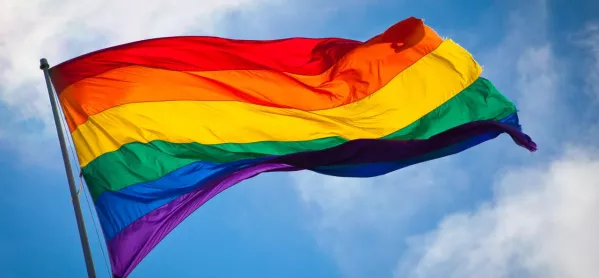Transgender children in single-sex schools are choosing to remain in the same school even once they have changed gender, a conference heard today.
Ashley Miller, clinical psychologist at the Tavistock and Portman Gender Identity Development Service in London, said that the benefits of supportive teachers and friends outweighed any concerns about being the only boy in a girls’ school or girl in a boys’ school.
“Children defining as a different gender - quite often, you get young people who choose to stay in the same single-sex school,” Dr Miller told the Developing Teenager conference today.
“Some young people have friendship groups and staff they trust, and want to stay at the same school, because they feel supported.”
She added that it was important for pupils to have access to a counsellor at the school in case any problems arose during their transition.
And she called on schools to consider practical ways to make transgender pupils feel welcome. These included the introduction of a gender-neutral uniform, as well as considering policies around changing rooms and toilets.
‘It’s about protecting students’
Gemma Curtis, head of education at inclusion charity Diversity Role Models, said that teachers’ attitudes were vital in determining how comfortable a transgendered pupil felt at school, regardless of whether or not it was single-sex.
“It’s about the school mentality around supporting gender dysphoric young people,” she said. “It’s about the culture of the school.
“I think it’s about staff training. Make it really clear that it’s all about protecting students. That’s the fundamental thing you need to do.”
The one-day Developing Teenager conference, held at Highgate School in North London, heard from a number of psychologists and educators, who discussed how to ensure that lesbian, gay, bisexual, transgender and questioning (LGBTQ) pupils feel safe at school.
A survey conducted by the charity revealed that 72 per cent of teenagers did not feel it would be safe to come out at school. And 47 per cent said that there was a negative atmosphere for LGBTQ people at their schools, compared with 18 per cent who said that there was a positive atmosphere.
Safety over silence
Ms Curtis said that it was vital for teachers to be well-informed about LGBTQ terminology as a first step towards making teenagers feel comfortable.
“It’s really useful for teachers to have a glossary of terminology in your desk,” she said. “The schools that we work in where teachers are out, or where they are LGBTQ allies, are the schools where students feel safe to come out. The environment is palpably different from those where there’s silence and hostility.”
And Emma Silver, consultant clinical psychologist at the Brandon Centre, which offers counselling for north London teenagers, said that teachers had an important role to play in ensuring all pupils were sufficiently well-equipped to cope with any social challenges that they might face.
“Schools have lots of skilled people working there, helping young people to develop problem-solving skills,” she said. “Without those life skills, young people will become isolated and overwhelmed.”
Want to keep up with the latest education news and opinion? Follow Tes on Twitter and like Tes on Facebook.




